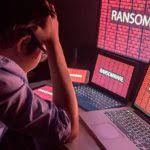The OneBlood Cyber Attack A Wake-Up Call in the Fight Against Ransomware.
A significant incident involving a ransomware cyber attack on OneBlood, the prominent nonprofit blood collector and supplier in the United States. This breach not only raised concerns about data security in the healthcare industry but also highlighted the growing threat posed by sophisticated cybercriminals, particularly those believed to be operating from Russia.
What Happened with the Ransomware Attack?
In an alarming turn of events, OneBlood disclosed that it had fallen victim to a ransomware attack that threatened to compromise sensitive data and disrupt its critical services. Ransomware attacks involve hackers encrypting a victim’s data and demanding a ransom to restore access. In this case, it was later reported that the breach was linked to a group of Russian hackers known for targeting organizations across various sectors.
OneBlood, which plays a vital role in the collection and distribution of blood products, faces unique challenges in the aftermath of this attack. The sensitivity of the data involved, which includes personal information of blood donors and patients, intensifies the stakes of such cyber incidents.
The Implications for Healthcare Security
The attack on OneBlood serves as a stark reminder of the vulnerabilities in the healthcare sector. Traditionally seen as a lower priority for cybersecurity efforts, healthcare organizations often grapple with resource constraints that leave them exposed. However, as demonstrated by this breach, the consequences of such vulnerabilities can be dire, affecting not just operational integrity but patient trust and safety.
To combat such threats, healthcare organizations need to invest in robust cybersecurity measures, including:
- Regular Security Audits: Conducting audits can help identify and patch vulnerabilities before they can be exploited.
- Employee Training: Human error is a significant factor in many cyber breaches. Training staff to recognize phishing attempts and other common tactics can bolster overall security.
- Incident Response Plans: Having a well-defined plan in place can mitigate the impact of a ransomware attack, allowing organizations to respond quickly and effectively.
The Role of Russian Hackers in Ransomware Attacks
The attribution of this attack to Russian cybercriminals underscores a troubling trend in the global landscape of cyber threats. Russian hacking groups have gained notoriety for orchestrating ransomware attacks against a range of high-profile targets, exploiting the geopolitical climate to leverage their influence. Their motivations can range from financial gain to political objectives, making them particularly challenging foes in the realm of cybersecurity.
While law enforcement agencies and cybersecurity experts work to combat these threats, it’s essential for organizations to adopt a proactive stance. The interconnected nature of our digital world means that no organization is immune to these attacks.
The Road Ahead
As the investigation into the OneBlood ransomware attack continues, the organization is undoubtedly assessing its security posture and taking steps to recover from this breach. Learning from such incidents is crucial; organizations must share knowledge about effective strategies and practices to prevent future attacks.
The escalating frequency and sophistication of ransomware attacks, particularly those tied to foreign hackers, highlight the need for a broader conversation about cybersecurity in critical sectors like healthcare. Government agencies, private organizations, and cybersecurity experts must collaborate to build a more resilient defense against this growing threat.
In conclusion, the OneBlood cyber attack is a critical reminder that cybersecurity should be a priority for every organization, particularly those that handle sensitive data. By learning from these incidents and fostering a culture of security awareness, we can better prepare ourselves to face the cyber threats of tomorrow.







